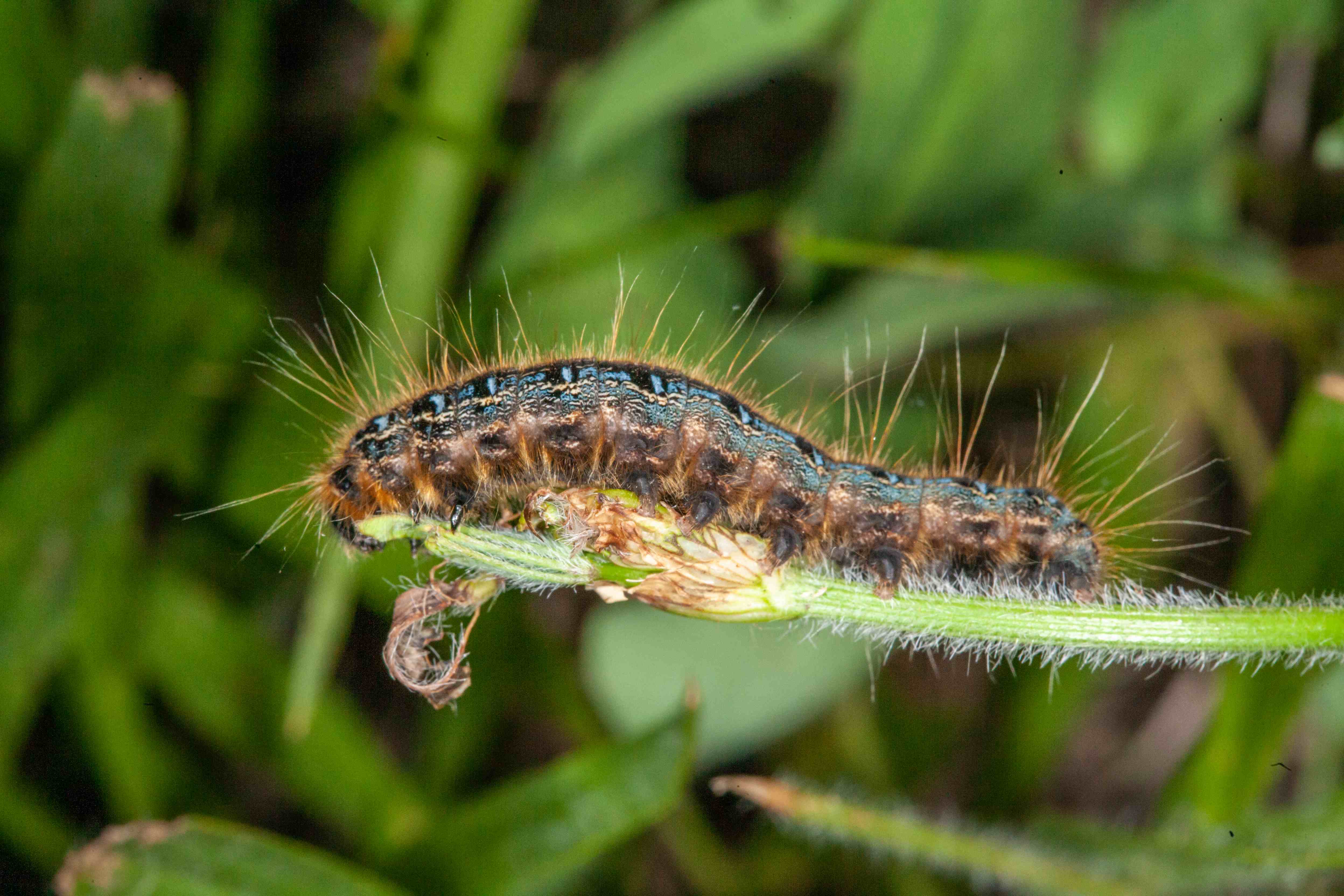Warm early spring means early Eastern tent caterpillar egg hatch
Warm early spring means early Eastern tent caterpillar egg hatch

Eastern tent caterpillars have begun to hatch in Kentucky, with the first detection in Fayette County March 1 and in Western Kentucky counties the last week of February. University of Kentucky College of Agriculture, Food and Environment entomologists said the abnormally warm spring has created favorable conditions for an early annual hatch.
“The Eastern tent caterpillar is one of our early riser pests,” said Jonathan Larson, UK assistant extension entomology professor. “They overwinter as eggs and begin hatching around 100 growing degree days, a measurement of development for insects that reflects the high and low temperature of any given day.”
Temperature heavily impacts eastern tent caterpillars’ development.
“Usually, we have a couple more weeks of waiting in Central Kentucky before we reach egg hatch,” Larson continued. “However, with the strangely warm winter, we are way ahead of schedule. As of March 1, when egg hatch had begun in Fayette County, we had hit 101 growing degree days. In comparison, last year on March 1, Fayette County had only reached 29 growing degree days. Western counties are even further ahead, with some counties between 120 and 140 growing degree days already.”
Larson said egg hatching typically coincides with the first blooms of the Eastern Redbud.
Consumption of large numbers of caterpillars by pregnant mares caused staggering foal losses in the Mare Reproductive Loss Syndrome outbreak of 1999-2001. MRLS may cause early- and late-term foal losses or weak foals. UK researchers conducted studies revealing horses will inadvertently eat the caterpillars in pastures and feedstuffs. The caterpillars’ hairs, specifically the hair cuticles, can embed into the lining of the horse’s alimentary tract. Once that protective barrier is breached, normal alimentary tract bacteria may gain access to and reproduce in sites with reduced immunity, such as the fetus and placenta.
When mature, the 2- to 2.5-inch long, hairy caterpillars may wander from their host trees to seek protected areas to spin their cocoons or additional food if their natal tree becomes defoliated. At such times, they may crawl along fence lines and into pastures. If practical, farm managers should move pregnant mares away from areas with abundant wild cherry trees to minimize caterpillar exposure. The greatest threat is when the mature caterpillars leave trees and wander to find places to pupate and transform to the moth stage.
Larson explained the Eastern tent caterpillar prefers to feed on cherry, crabapple, maple and apple trees, and more. The caterpillars receive their name from the silken tents they build to protect them from predators and parasitoids. The Eastern tent caterpillar is a much tidier builder when compared to another web-making caterpillar, the fall webworm. Eastern tent caterpillars build compact nests found in branch crooks and crotches. The fall webworm builds large and messy webs over the tips of branches. Eastern tent caterpillar populations annually fluctuate based on the climate, predators or pathogens.
“They still inspire fear in some due to their connection with MRLS,” Larson said. “While we haven’t seen levels of caterpillars reach the extremes we saw during MRLS, we do like to let people know when they have started their activity each year so that concerned horse owners can start to monitor for webs on their property.”
The tents start to become obvious about 50 growing-degree days after the eggs hatch. To track growing degree days for each county, visit http://weather.uky.edu/php/kyc_dd.php
For more information about how to assess trees for egg masses, the UK Entomology publication, Checking Eastern Tent Caterpillar Egg Masses, is available at https://entomology.ca.uky.edu/ef449.
Entomology Ag Equine Programs

